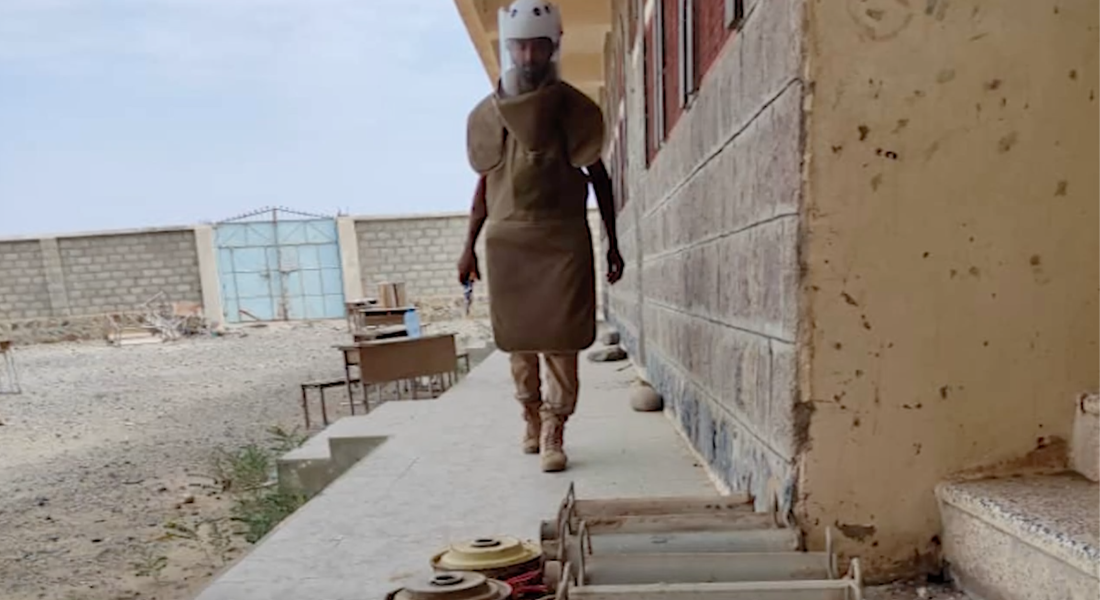
A large number of landmines have been planted in the healthcare centre, school and water tank in Al-Dahiya village, Al-Khawkhah Directorate, Project Masam’s Technical Expert Fayez Al-Harbi, has revealed.
The area, situated south of the strategic port city of Hodeidah, is one of the most heavily mined in Yemen. Houthi militias laid landmines as they retreated as battlefields shifted in and around the key city of Hodeidah. In 2019, ACLED found the southern districts of At Tuhayta, Ad Durahyimi, Al Khawkhah, and Hays accounted for 70 per cent of Yemen’s landmine casualties.
This week, Project Masam’s Teams 20 and 26, operating in Al-Khawkhah discovered and cleared 10 booby-trapped explosive devices that were planted in the healthcare center of Al-Dahiya village.
“Another eight explosive devices were planted in the main water tank of the village,” Al-Harbi said in an update. “Additionally, 11 explosive devices and five anti-tank mines were planted in Abu Bakr Al-Siddiq School in Al-Dahiya village, Al-Khawkhah Directorate.”
The deminers conducted Mine Risk Education in the area to teach the school children and adults how to identify landmines, booby traps and unexploded remnants of war, and to report and protect themselves from the explosive devices.
Masam Teams 20 and 26, who also operated in the recently liberated Al-Hays area, cleared 82 anti-tank mines.
“Work is still ongoing to secure the area and secure the roads leading to it,” Al-Harbi added.
Between 1 November and 26 November 2021, Masam teams cleared 62,100sqm of liberated areas in Hodeidah Governorate, including 22 anti-tank mines and 46 unexploded ordnance (UXO).

